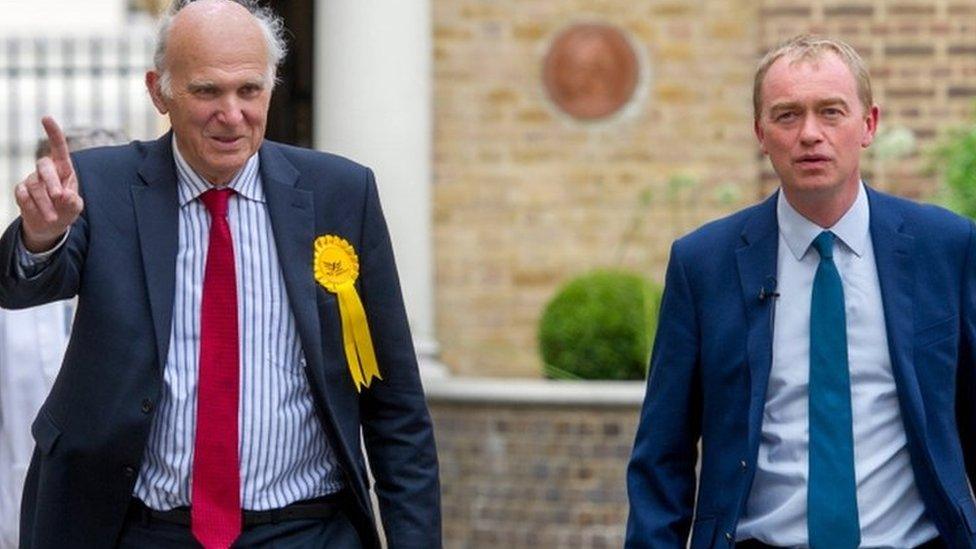Lib Dems must 'think big' or struggle warns Ashdown
- Published
- comments
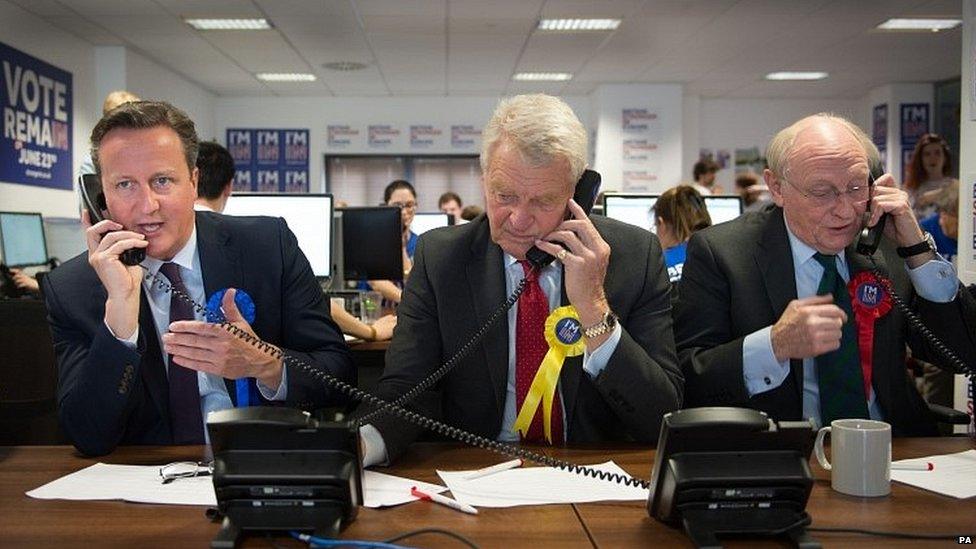
The Lib Dems should not be afraid of working with figures in other parties, Lord Ashdown says
The Lib Dems are producing "very few new ideas" and must "think big" again, former leader Lord Ashdown has said.
The peer said the party, whose autumn conference begins on Saturday, had gone "backwards" at the last election despite circumstances favouring them.
"Existential" challenges facing the party must be confronted, he said, not glossed over, urging leader Vince Cable to encourage a "ferment of debate".
It boosted its tally of MPs from nine to 12 in June but its total vote fell.
The Lib Dems got 7.4% of the vote in the snap election, compared with 7.9% in 2015, when its involvement in the coalition government with the Conservatives was blamed for its loss of nearly 50 seats.
Sir Vince, who succeeded Tim Farron after June's election, has conceded the party's campaign message on Brexit, calling for a further referendum on the final terms of withdrawal, failed to "cut through".
In his first major speech last week, he started to flesh out a new direction for the party, identifying inequality as the most serious challenge facing the country and calling for reform of the way property and wealth is taxed.
In an article for the Lib Dem voice website, external, Lord Ashdown - who led the party between 1988 and 1999 - praised Sir Vince as a "multi-talented leader" but said the Lib Dems had to do much more to make themselves heard in the current "polarised" political climate.
"We are doing very little new thinking and producing very few new ideas," he wrote. "Can you name one big, dangerous idea we Lib Dems have produced since 2015?"
"Vince's speech of last week began the process of thinking big again. We should pick up his lead and start coming up with our own new, dangerous ideas - and debating them at conference."
'Recreate ourselves'
The Lib Dems, he warned, were now seen as "part of the establishment" rather than looking or sounding like radical insurgents, their default position for most of their existence before 2010.
Unless they found a way of appealing to the millions of people who occupied the "progressive centre" but currently felt unrepresented, he said others would fill that vacuum, as the SDP did in the early 1980s and New Labour in the 1990s.
"Not in my life time have their been conditions more favourable for a Lib Dem advance in a general election," he wrote of June's poll. "But we went backwards."
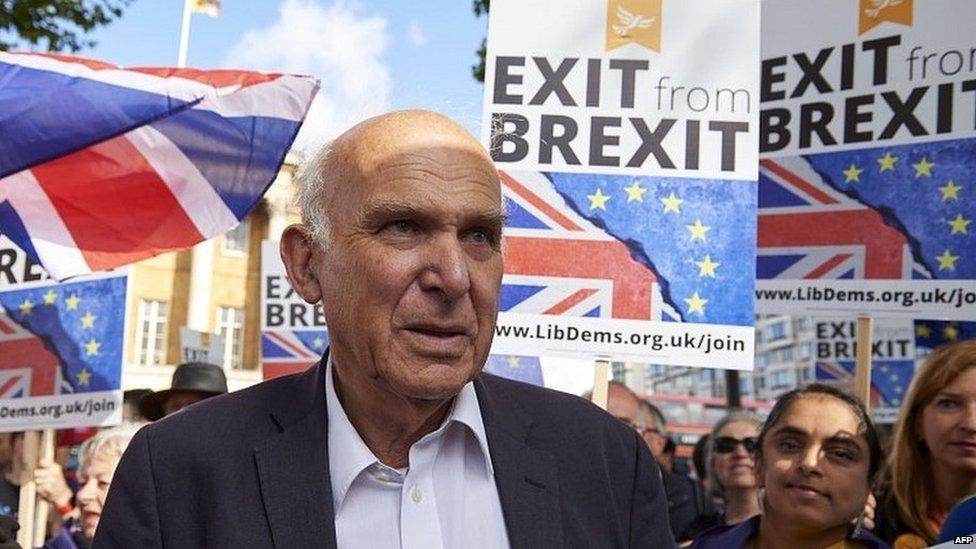
Lib Dem leader Sir Vince Cable has said Brexit may never happen
"The biggest danger for our party lies in glossing over the existential challenges which now face us," he wrote. "Unless we are prepared to be realistic about where we are, return to being radical about what we propose, recreate ourselves as an insurgent force and re-kindle our lost habit of intellectual ferment, things could get even worse for us."
Rather than being "hostile" to working with like-minded individuals in other parties or "standing aloof", he said the party must embrace shared thinking on the economy, environment, constitution and foreign policy, if it was to move forward.
"If we are to fulfil our historic role at a moment when liberalism is more at threat than ever in my life, then we have to be less tribal, more inclusive and more willing to engage others than we have sometimes seemed in recent years," he said.
"Issues such as creating a green but successful market based economy; sorting out the fabulous mess of our broken constitution; spreading wealth in the age of robotics and artificial intelligence; adopting a foreign and defence policy more appropriate to our fractured, unravelling world.
"If this strategy is to work for us, it must be confidently led from the top, not just mildly tolerated at the top."
The party's four-day conference in Bournemouth concludes on Tuesday with Sir Vince's first leader's speech.
- Published6 September 2017
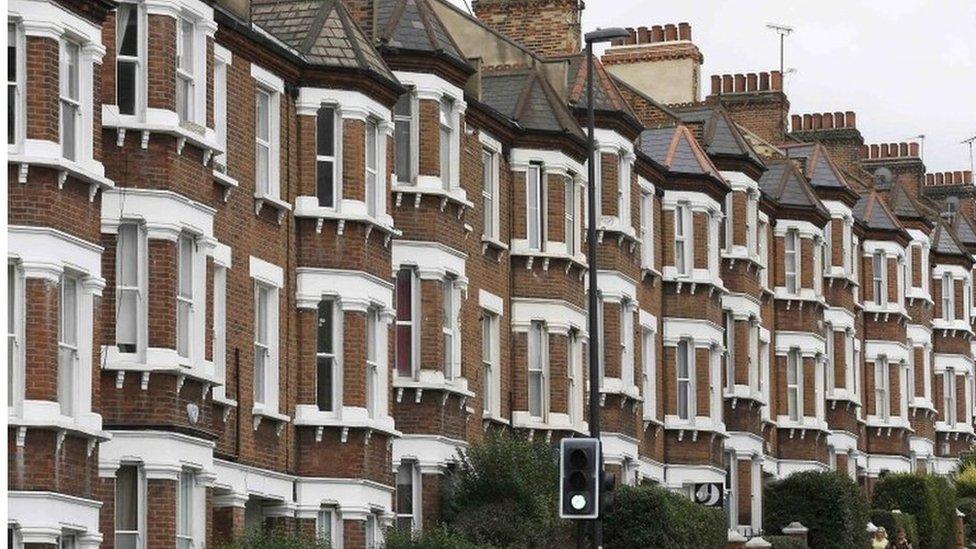
- Published6 August 2017
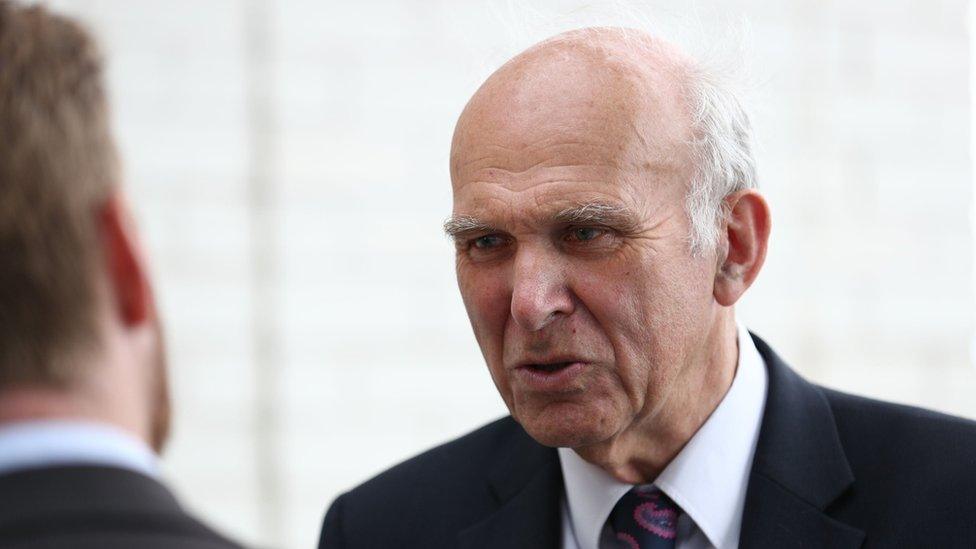
- Published3 July 2017
